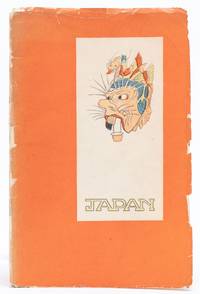first edition
1877 · Hartford, Connecticut
by Smith, Julia
Hartford, Connecticut: American Publishing Co, 1877. First edition. Good. Publisher’s brown printed paper wrappers. Octavo. 94 pp. Complete with the frontispiece. Most of spine perished, back cover detached and front cover coming loose. Advertisement for the Julia Smith Bible printed on inside of front cover. Some foxing to wrappers and first and last few leaves. Otherwise, quite clean throughout. A good copy of a fragile item documenting the landmark legal case of the Smith sisters against the town of Glastonbury, Connecticut. One of only three works published by Julia Smith (the others being her 1876 Bible translation and an 1871 collection of her mother’s poems, which she edited), it is scarce in commerce and uncommon institutionally. This short work compiles periodical coverage of the case (including columns in favor of the Smith sisters by activists like Lucy Stone, Isabella Beecher Hooker, Almira Lincoln Phelps, and William Lloyd Garrison), statements by the Smith sisters (including speeches given by Abby Smith), and a transcript of the trial.
In 1873, tax collectors working for the town of Glastonbury, Connecticut notified Abby and Julia Smith that their family homestead had been reassessed at $100 more than its previous value, and demanded payment to match. At the same time, the property of two widows in the town had been reassessed at a higher value, belying the attempts of the town government to target legally vulnerable older women. In protest, the Smith sisters refused to pay the tax: they and the widows could not vote and had no voice in the rising taxes, so the situation amounted to taxation without representation. The sisters had seven of their cows seized by the town in response, and the case began to draw national attention from newspaper editors: Harper’s Weekly, the Hartford Courant, the Springfield Republican, the Woman’s Journal, and many other publications began to cover the case, drawing attention to the Smith sisters and their suffragist ideals. The town soon seized the Smith sisters' homestead, a property valued at $2,000, and sold it for $78. The sale further motivated the Smith sisters and their allies to continue their public fight against the unjust taxation and seizure of their property, and the sisters sued the town of Glastonbury (a nearly unheard-of move for women at the time) to recoup the land. A years-long legal battle ensued, which the Smith sisters eventually won, allowing them to retain ownership of the homestead.
Throughout the course of the case, the Smith sisters were supported by many activists who recognized it as a battle not just over land and livestock but over the legal rights of unmarried women in the United States. Some also cast the Smith sisters in the role of revolutionaries: as one contemporary Harper’s Weekly journalist wrote, “If Sam Adams and George Washington would not submit to this kind of taxation a hundred years ago, why should Miss Abby Smith and her sister submit now? If it was tyranny then, is it less tyranny now?”
Julia Smith is best known for being the first woman to fully translate the Bible into English, a project she began in 1847. She published the translation in 1876, while still in the midst of the legal battle to retain her property. Like the present item, Smith’s Bible was also issued by the American Publishing Co., where “the typesetting, operation of the printing press and editing were done by women” (Bronwen Speedie). It was, in part, due to the legal case documented here that Smith’s Bible translation was published: the case drew the Smith sisters into broader women’s rights movement, which galvanized their own ideals, connected them with a feminist publishing apparatus, and motivated Julia to finally publish her Bible after decades of labor. Good. (Inventory #: 6705)
In 1873, tax collectors working for the town of Glastonbury, Connecticut notified Abby and Julia Smith that their family homestead had been reassessed at $100 more than its previous value, and demanded payment to match. At the same time, the property of two widows in the town had been reassessed at a higher value, belying the attempts of the town government to target legally vulnerable older women. In protest, the Smith sisters refused to pay the tax: they and the widows could not vote and had no voice in the rising taxes, so the situation amounted to taxation without representation. The sisters had seven of their cows seized by the town in response, and the case began to draw national attention from newspaper editors: Harper’s Weekly, the Hartford Courant, the Springfield Republican, the Woman’s Journal, and many other publications began to cover the case, drawing attention to the Smith sisters and their suffragist ideals. The town soon seized the Smith sisters' homestead, a property valued at $2,000, and sold it for $78. The sale further motivated the Smith sisters and their allies to continue their public fight against the unjust taxation and seizure of their property, and the sisters sued the town of Glastonbury (a nearly unheard-of move for women at the time) to recoup the land. A years-long legal battle ensued, which the Smith sisters eventually won, allowing them to retain ownership of the homestead.
Throughout the course of the case, the Smith sisters were supported by many activists who recognized it as a battle not just over land and livestock but over the legal rights of unmarried women in the United States. Some also cast the Smith sisters in the role of revolutionaries: as one contemporary Harper’s Weekly journalist wrote, “If Sam Adams and George Washington would not submit to this kind of taxation a hundred years ago, why should Miss Abby Smith and her sister submit now? If it was tyranny then, is it less tyranny now?”
Julia Smith is best known for being the first woman to fully translate the Bible into English, a project she began in 1847. She published the translation in 1876, while still in the midst of the legal battle to retain her property. Like the present item, Smith’s Bible was also issued by the American Publishing Co., where “the typesetting, operation of the printing press and editing were done by women” (Bronwen Speedie). It was, in part, due to the legal case documented here that Smith’s Bible translation was published: the case drew the Smith sisters into broader women’s rights movement, which galvanized their own ideals, connected them with a feminist publishing apparatus, and motivated Julia to finally publish her Bible after decades of labor. Good. (Inventory #: 6705)











